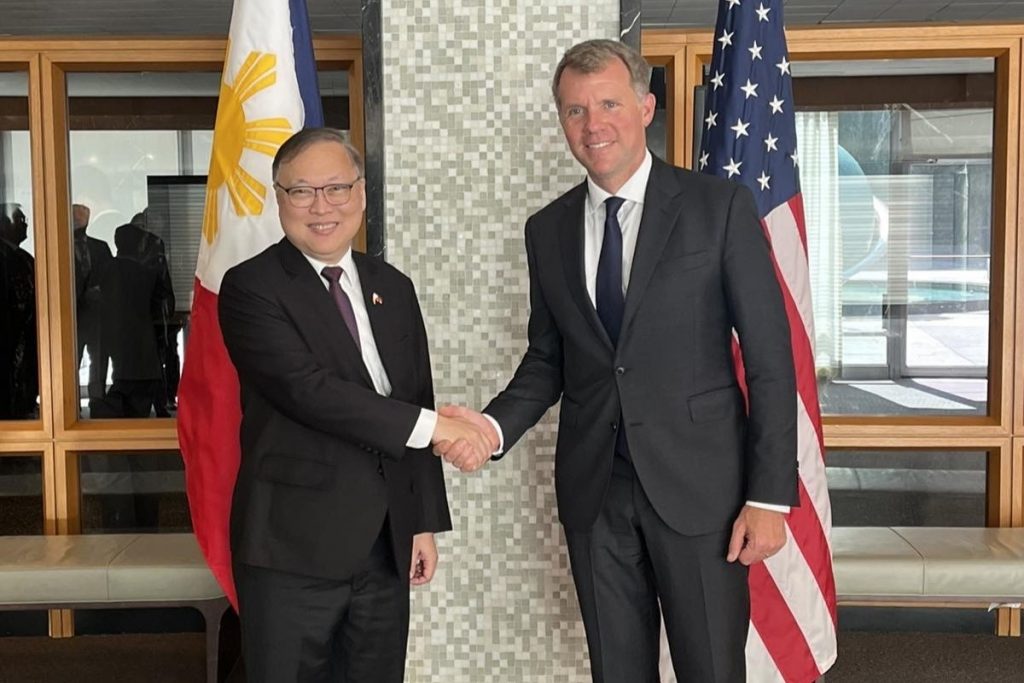US discusses how to strengthen Phl’s ICT ecosystem amid cybersecurity threats
Cognizant of the intensified and unabated cyberattacks happening globally, the United States and the Philippines held their first Cyber-Digital Policy Dialogue to advance an open, interoperable, reliable, and secure information and communication technologies (ICT) ecosystem to support the growth of the digital economy and strengthen resilience to cybersecurity threats on July 15 and 16 in Washington, D.C.
During the Dialogue, U.S. Ambassador at Large for Cyberspace and Digital Policy Nathaniel Fick and Philippine Secretary for Information and Communications Technology Ivan John Uy underscored their countries’ shared interest in advancing bilateral and regional cooperation on cyber capacity building, supporting the growth of the digital economy, and combating cybercrime following the Philippines’ recent admission to the International Counter Ransomware Initiative. They also committed to further discussions on the protection of critical infrastructure against malicious cyber activity and enhanced collaboration between their respective national Computer Emergency Response Teams.

“Cybersecurity stands as a paramount global challenge, demanding unified efforts, collective intelligence, and steadfast solidarity. The partnership between the United States and the Philippines serves as an exemplar of effective collaboration essential for combating these evolving threats,” Secretary Uy said. “Our collaboration sets a powerful precedent, inspiring nations to join forces in confronting cybersecurity challenges head-on, ensuring a safer and more resilient global cyberspace for generations to come.”
“The United States believes that a secure and trustworthy ICT ecosystem is vital to supporting the growth of the digital economy and providing improved digital services for our citizens,” Ambassador Fick said. “The Philippines remains our friend, partner, and ally in the cyber and digital space. This first U.S.-Philippines Cyber-Digital Policy Dialogue was an opportunity to discuss our important bilateral efforts to strengthen cyber security and our digital economy and to protect government information systems that are a critical backbone of our alliance,” Ambassador Fick added.
Both sides agreed to pursue joint efforts on the development of fifth generation (5G) networks and open, interoperable, and trusted architectures such as Open Radio Access Network (Open RAN); secure and reliable global undersea cable networks; and digital connectivity and inclusion through cloud computing and satellite-based solutions.
Other commitments made during the Dialogue include ensuring the trusted flow of data across borders; deepening collaboration through the Global Cross-Border Privacy Rules Forum to facilitate interoperability among data protection and privacy frameworks globally; strengthening cooperation through the ASEAN Digital Ministers’ and Senior Officials’ meetings; and fostering investments for secure and resilient ICT infrastructure.
Both countries also discussed the importance of upholding and implementing the United Nations Framework of Responsible State Behavior in Cyberspace as well as continued implementation of cyber confidence building measures.
The U.S. delegation included representatives from the Department of State, the Department of Defense, the Department of Commerce, the Department of Homeland Security, the Department of Justice, including the Criminal Division and Federal Bureau of Investigation, the Office of the National Cyber Directorate, the National Institute of Standards and Technology, and the U.S. Agency for International Development.
The Philippines was represented by officials from the Department of Information and Communications Technology, the Department of Foreign Affairs, the Department of National Defense, the Department of Transportation, the Department of Trade and Industry, the National Telecommunications Commission, the National Privacy Commission, the Cybercrime Investigation Coordinating Center, the National Security Council, the National Intelligence Coordinating Agency, the Armed Forces of the Philippines, and the Philippine National Police.
The United States and the Philippines will identify more opportunities for technology cooperation during the planned Japan-Philippines-United States Trilateral Cyber and Digital Dialogue later this year.


No comments: